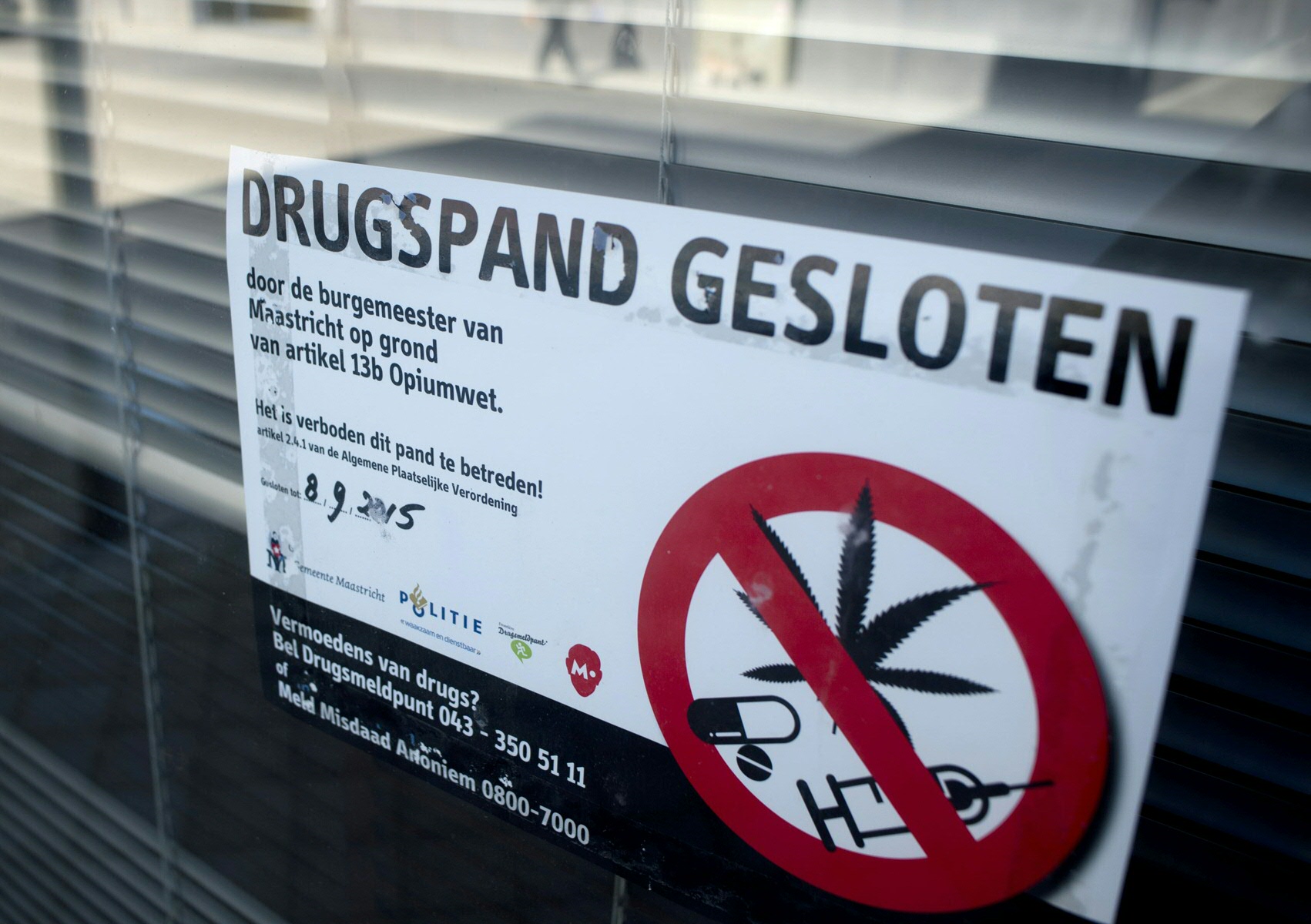Alternative measures implemented in the war against drugs

The war against drugs is changing, slowly but surely. This is the conclusion reached by Michelle Bruijn in her PhD research. Countries are resigned to the limitations of the criminal law system and are now looking for other ways of tackling drug-related crime. Bruijn will be awarded a PhD by the University of Groningen on 20 May 2021.
Many researchers claim that the criminal law system is ineffective in its attempts to tackle drug abuse and drug-related crime. They conclude that the war against drugs has failed. But Michelle Bruijn has drawn a different conclusion after studying the regulation of cannabis in Canada and the Netherlands, the closure of drug houses in the Netherlands and home evictions because of drug-related crime in the Netherlands and the United States of America.
Limitations of criminal law
The criminal law system restricts the government in its ability to tackle drug-related crime. One of the reasons is that the protection afforded to citizens under criminal law has made the procedures too lengthy. ‘In addition, the strategy of the criminal law path does not appear to be working,’ says Bruijn. Bruijn explains how some countries have found other avenues. Some of them, including Canada, have liberalized or legalized the use, possession, sale and production of cannabis. The Dutch government has pursued a non-enforcement policy regarding the sale of cannabis in coffee shops for decades, and is about to start an experiment with the regulated growing of cannabis.
International criticism
Bruijn: ‘The UN drugs conventions, which ban the legalization of cannabis, no longer seem to form an obstacle.’ Until now, both Canada and the Netherlands have been criticized internationally for their liberal cannabis policies, but there have been no actual repercussions. Bruijn: ‘Current developments show that the governments in both countries have little difficulty waiving the international conventions.’

Eviction
Another way of getting around the limitations of criminal law is to deploy administrative and private law instead. In this way, drugs producers do not only face legal sanctions, but may also lose their homes through closure or eviction. ‘The main advantage of this approach is that administrative and private law provide far fewer public safeguards than criminal law,’ explains Bruijn. ‘An appeal for the right to a fair trial or the right to housing provides little legal protection in cases involving closures and evictions.’
Pressure on the legal protection of citizens
Bruijn concludes that whereas the approach to the ‘war on drugs’ used to be based purely on criminal law, it is now also based on administrative and civil law. This has eroded the boundaries between the various fields of law, and has had an adverse effect on the legal protection of citizens. ‘Both the right to a fair trial and the right to housing have been seriously compromised. Legal protection has not yet been amended to cover this alternative war on drugs.’
For more information
| Last modified: | 14 June 2021 09.57 a.m. |
More news
-
05 March 2025
Women in Science
The UG celebrates International Women’s Day with a special photo series: Women in Science.
-
04 February 2025
'To entice is okay, to mislead is not'
In the supermarket, there is a carton of ‘blackcurrant juice’. At least, that is what it is called and what the picture on the packaging suggests. The list of ingredients, however, states that the contents are mainly made of apples and grapes. Is...
-
23 January 2025
Two UG researchers join The Young Academy
Prof. Björn Hoops and Dr Esther Metting are joining The Young Academy (De Jonge Akademie, DJA) of the Royal Netherlands Academy of Arts and Sciences (Koningklijke Nederlandse Akademie van Wetenschappen, KNAW). Every year, the DJA selects 10 talented...
